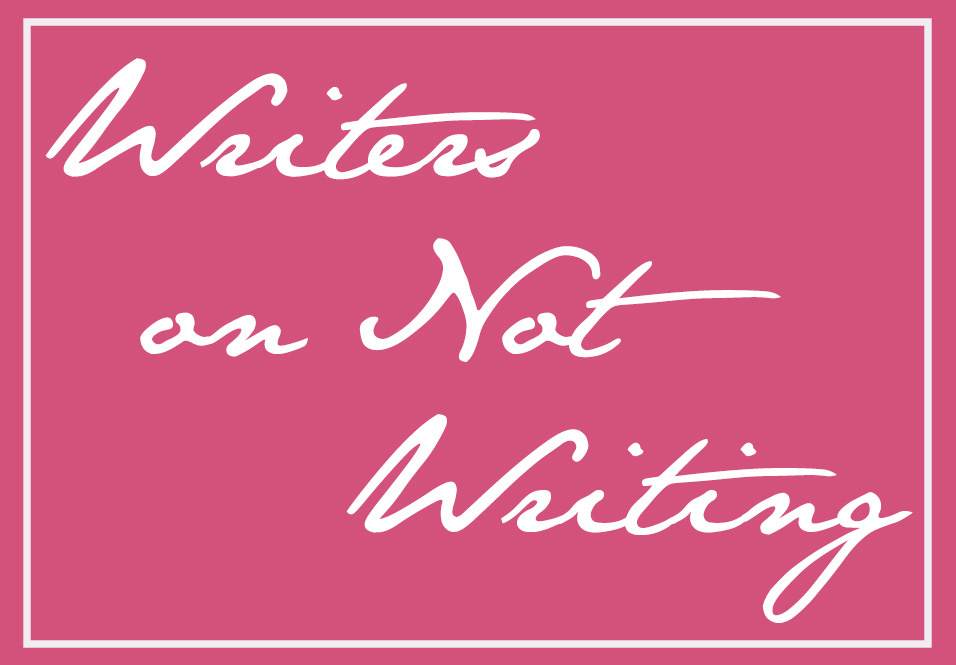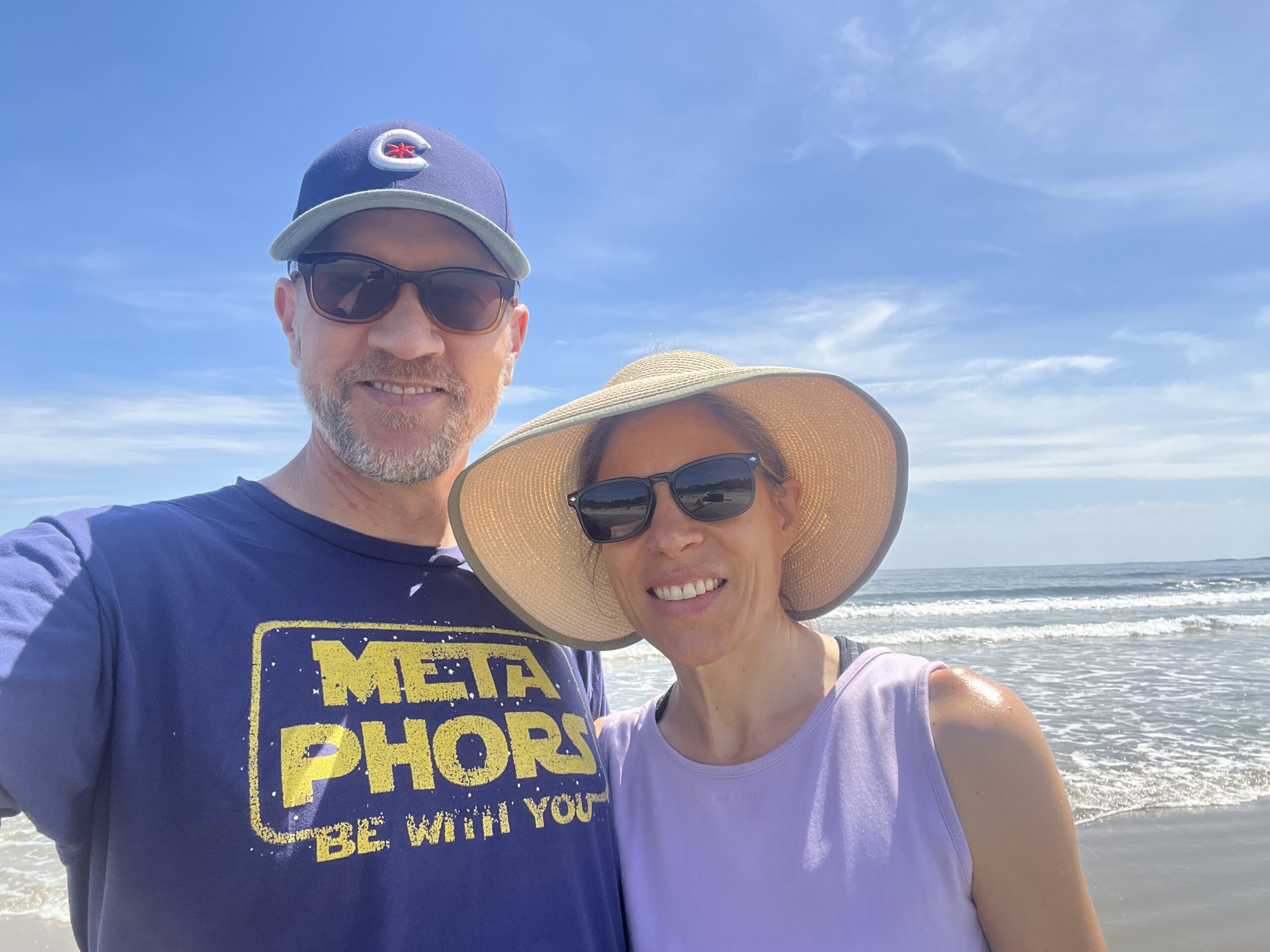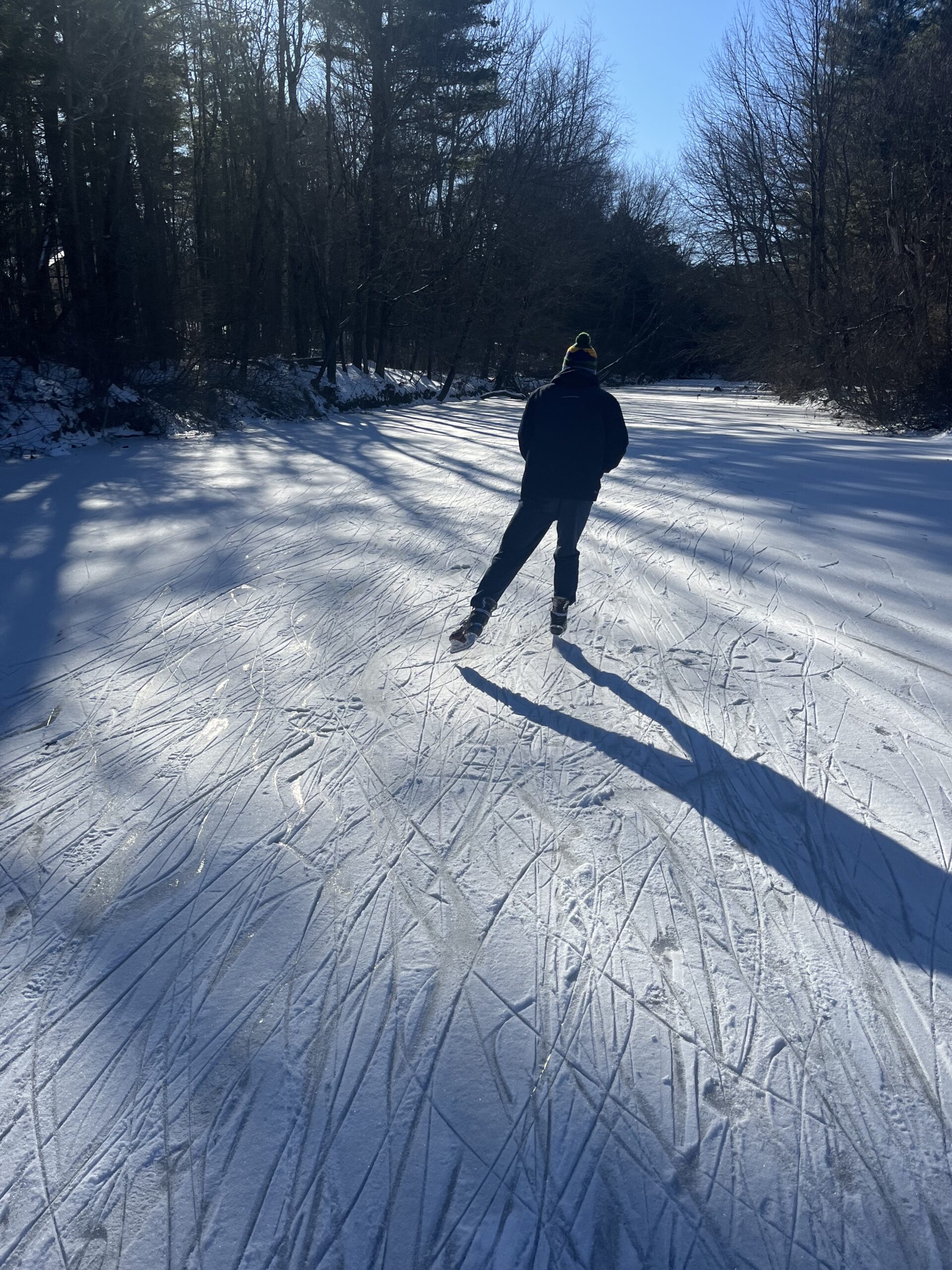Writers pour so much energy into their craft that sometimes we forget that creative pursuits other than writing can fill us up in other important ways. Here, we’ll look at what writers do when they aren’t writing, and how those pursuits affect the return to the page. This month, we hear from two writers—Gibson Fay-LeBlanc and Taryn Bowe—who both mark the importance of returning to the physical body for inspiration and rejuvenation.

I generally fill my creative cup by being outdoors in Maine. In winter, I might be skating on a frozen river, playing outdoor hockey, or cross-country skiing. In spring, summer, and fall, it might be running outside, jumping in the ocean, hiking, walking with my dogs, or gardening.
 I like to move, and many of my non-writing pursuits are physical to one degree or another. The act of writing is solitary and sedentary, but when I’m outdoors, I feel like I’m gathering sensory information and details. I also like the idea of knowing my places, which means paying attention to them, to what’s growing and dying, what’s singing and silent, what it looks like, what it smells like, what it feels like to be out there moving through my little corners of the world. I almost always have a little notebook (or at least a phone notes app) to record thoughts or lines or observations, so I don’t forget them. The act of writing helps me pay better attention; the act of being outdoors helps me remember I live in a body moving through particular times and places.
I like to move, and many of my non-writing pursuits are physical to one degree or another. The act of writing is solitary and sedentary, but when I’m outdoors, I feel like I’m gathering sensory information and details. I also like the idea of knowing my places, which means paying attention to them, to what’s growing and dying, what’s singing and silent, what it looks like, what it smells like, what it feels like to be out there moving through my little corners of the world. I almost always have a little notebook (or at least a phone notes app) to record thoughts or lines or observations, so I don’t forget them. The act of writing helps me pay better attention; the act of being outdoors helps me remember I live in a body moving through particular times and places.
 One of the themes in my most recent book, Deke Dangle Dive, is the game of ice hockey, its moves and speed and violence. I wrote these poems for my brother, who died in 2020, and to think about this game we grew up playing together. I also wrote these poems for my sons, who I taught to play this game, and to think and feel my way through what it means to be a man and father and friend in this time and place. I would never have been able to write these poems if I wasn’t still playing hockey, which I love to do outdoors, though that has become less and less possible in Southern Maine over the last decade.
One of the themes in my most recent book, Deke Dangle Dive, is the game of ice hockey, its moves and speed and violence. I wrote these poems for my brother, who died in 2020, and to think about this game we grew up playing together. I also wrote these poems for my sons, who I taught to play this game, and to think and feel my way through what it means to be a man and father and friend in this time and place. I would never have been able to write these poems if I wasn’t still playing hockey, which I love to do outdoors, though that has become less and less possible in Southern Maine over the last decade.
I also realized in writing this book how important physicality is in my poems. I like muscular sentences and language that reminds us we live in bodies that we can never fully understand, that are only “ours” for a short time. My work is also filled with images from the natural world; that is another kind of physicality.
Gibson Fay-LeBlanc
Some of my favorite things to do when I’m not writing are: hanging out with my daughter and husband, taking walks by myself in the woods while listening to music, taking spin classes, reading, and napping. None of these activities are particularly creative, outside of parenting, which requires constant flexibility and creativity. I’m an all or nothing kind of person, and because of that, I think I’m hesitant to take on new creative pursuits outside of work and family and writing because I don’t know how I’d continue to find time for those other three things which are important to me.
Hanging out with my husband brings me a great sense of stability and togetherness. I love the way we’ve carved out a space together that feels somewhat protected from the craziness of the world and that allows me to go out into the crazy world and take creative risks because I know I have something safe and stable to return to. Hanging with my 14-year-old daughter is just so very eye opening because she thinks and tells stories like a writer, with an eye and ear for key details, and she helps me notice things I might otherwise miss about people and the world. I think walking and listening to music and napping are all very conducive to daydreaming, which is part of my creative process, and each of these things also helps me clear my head when it gets too noisy in there, which is a million times a day.
When I was growing up, I was very devoted to playing basketball. In many ways, it was my big thing, like writing is my big thing now. Then after college, I took a long hiatus from intense athletic stuff. About two years ago, my depression was really kicking my ass, and I was struggling to not sink into a dark mental pit, so a friend convinced me to try spin class. At the first class, I had to get off the bike and sit on the ground because it was so hard I almost passed out and vomited simultaneously. But I loved how loud and good the music was, and I loved the idea of getting back into intense athletic stuff (without pushing it too hard like I’d done in the past), and this space was super inclusive and positive. Honestly, if I ever publish the book I’m working on now, I will absolutely thank my spin studio and instructors in the acknowledgements section because I think physical training and developing physical and mental stamina has been essential to pushing through hard writing moments and accessing the drive and stamina needed for longer, book-length projects. I feel tougher as a writer, and this has helped me not back off difficult scenes and sections when the writing gets tough and sticky.
Taryn Bowe
Gibson Fay-LeBlanc’s first collection of poems, Death of a Ventriloquist, won the Vassar Miller Prize, and his second, Deke Dangle Dive, was published by CavanKerry in 2021. His poems have appeared in the New Republic, Tin House, Narrative Magazine, and Orion, and he currently serves as Executive Director of the Maine Writers & Publishers Alliance.
Taryn Bowe’s writing has appeared in Best American Short Stories, The Sewanee Review, Indiana Review, Epoch, and Joyland, and has been featured on NPR’s Selected Shorts. She lives with her husband and daughter and serves as the Associate Director at the Maine Writers & Publishers Alliance.
Curated by Jen Dupree
